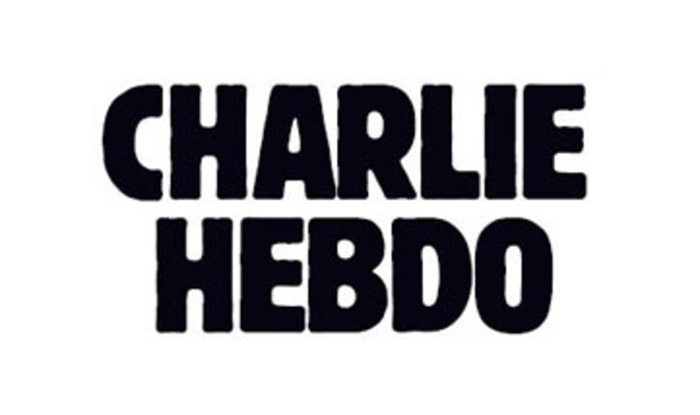After the first wave of condemnation of the attackers and sympathy for the cartoonists following the Charlie Hebdo shooting, criticism of the magazine’s content slowly crept into left-leaning commentary. Many media outlets, including the McGill Tribune, argued that the cartoons were offensive, and called into question the limitations of free speech. More frightening still, was how some articles seemed to suggest that the cartoonists were partly to blame for the attack. Sharon Xie’s opinion article in the January 20, 2015 issue of the McGill Tribune entitled “Who is Charlie?” urged readers not to equate freedom of expression with freedom from consequence. This is victim blaming, plain and simple. Free speech does not end where opinions become offensive or unpopular. The media must accommodate the sacred and the profane. Xie argued that the cartoons were neither clever nor high-minded; their only purpose was to offend. While the quality of the cartoons is debatable, their right to exist is not. Free speech means protecting even bad satire.
The Charlie Hebdo incident is just the latest battle in a war of ideas over whether sacred beliefs can be criticized. Nowhere is this harder fought than in the Muslim world; in January, Saudi Arabia drew international attention when it sentenced an atheist blogger to 10 years in prison and 1,000 lashes for blasphemy. While many imams have done a good job of condemning the actions of the Islamic State and jihadists, they have failed to address the root of the problem—the immoral passages in holy scripture that extremists draw from. It is rare to see Islamic leaders or scholars denounce passages like Quran 4:89, which tells believers to slay infidels, or Hadith 4447, which prescribes death as the appropriate punishment for homosexuality. Clearly, there is no twisting of words here; these passages are unambiguously immoral. Indeed, similar passages can be found in other religious texts, such as the Old Testament. Fear of retribution and fear of being labelled ‘Islamophobic’ have made some people within the media hesitant to criticize Islam in the same way that it criticizes Christianity.
The Islamic State and the Charlie Hebdo terrorists uphold a literal interpretation of the Islamic texts; an interpretation that is not shared among most Muslims. Where, then, are the tweets calling out these passages with tags like #NotInMyFaith? There needs to be a new movement, not just in Islam, but in all religions, that is not afraid to openly reject the most pernicious beliefs.










Muslims around the world condemned the Paris attacks, marched in solidarity with its victims, and tweeted #jesuischarlie. For writers like this it is never enough.
Also not enough for writers like this was Sharon Xie repeated assertion that the Charlie Hebdo attack was inexcusable, as well as making clear that she did not believe the magazine’s editorial policy should have been constrained.
There is an agenda being pursued by writers such as this one, and that agenda does not include engaging honestly with those it seeks to criticize.
~78% of British Muslims thought the Danish cartoonists should have been prosecuted for depicting Mohammed. A huge obstacle to dealing with these issues honestly is liberals’ unwillingness to believe how pervasive these beliefs are. It isn’t enough to condemn the attacks, if you still want the cartoonists to be punished!
Yes, it absolutely is enough to condemn the attacks, no matter one’ opinions on the cartoons and the cartoonists. A democratic society can accommodate any number of illiberal opinions, so long as the people holding those opinions remain within the bounds of democratic established law.
The percentage of people holding these beliefs in the Arab world is even higher than it is in England. In that case, democracy fails. If the majority of people in a country want people punished for an illustration, murdered for homosexuality, and stoned for adultery, then these will become “established law”. That’s why it’s not enough just to condemn the attacks. The underlying beliefs must change. There are some rights – free speech, protection of minorities, etc. – that are too important to be left for the majority to decide.
You cite a survey of British Muslims on one issue (which was at least tangentially related to the pieces under discussion), and move to laws of the “Arab world” (not a notably democratic region) that relate to other issues. Charlie Hebdo was not based in Damascus, those that attacked it were not residents of Saudi Arabia. But even in those countries, the Paris attacks were broadly condemned. Could you let me know what the final destination of your goalposts is, before we proceed further?
As to this: “There are some rights – free speech, protection of minorities, etc. – that are too important to be left for the majority to decide” – may I ask for some consideration on your part? I tend to find platitudes like this hard to read, as my eyes tear up from boredom. I had hoped to avoid that by writing “a democratic society” and “democratic established law” neither of which are – at least in the variants of English with which I am familiar – synonymous with “majoritarianism.” I try to write with care and precision, and it is very disheartening for the effort to go to waste.